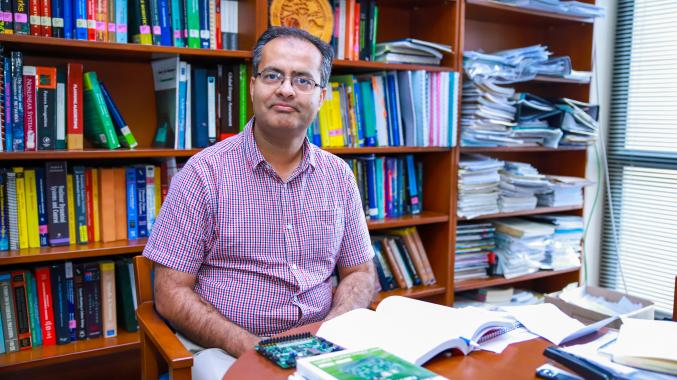
Dr. Abubakr Muhammad has been appointed as the Department Chair of Electrical Engineering at the Syed Babar Ali School of Science and Engineering (SBASSE) for a three-year term. He is presently the Director of the Centre for Water Informatics and Technology at LUMS, and Associate Professor at the Department of Electrical Engineering.
Dr. Muhammad received his BSc in Electrical Engineering from the University of Engineering and Technology, Lahore in 2000 and joined the Georgia Institute of Technology, USA, where he completed two Masters degrees in Mathematics and Electrical Engineering. In 2005, he received his PhD in Electrical Engineering from Georgia Tech, where his PhD thesis won the PhD Dissertation Award across all science and engineering disciplines. He then worked as a postdoctoral fellow at the University of Pennsylvania, USA (2006-07) and later at McGill University, Canada (2007-08).
Dr. Muhammad joined the Department Of Electrical Engineering at LUMS in 2008 as its first faculty member. He established the Laboratory for Cyber Physical Networks and Systems (CYPHYNETS) which conducts fundamental and applied research in robotics, cyber physical systems and control engineering. In 2016, his pioneering work for water and agriculture in Pakistan enabled him to set up the Centre for Water Informatics and Technology at LUMS.
Talking about the Department of Electrical Engineering and its scope of work, Dr. Muhammad said, “This Department is the largest and most complex operation at SBASSE comprising the biggest group of faculty, numerous labs and facilities, a large body of hard-working students and a number of dedicated staff members. It connects both, physically and intellectually, with all of the departments at the School. Producing engineers of the 21st century, the department aims to inculcate in them the ability to understand the deep results of science, interact with society, provide solutions for sustainability, help navigate the ethical dilemmas of disruptive technologies and create works of art via elegant design.”








